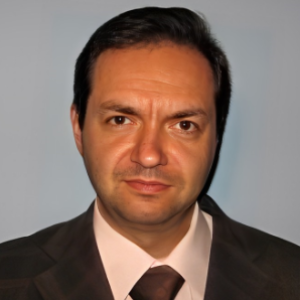Title : Biomimetic electronic devices for adrenergic synapsis modeling
Abstract:
The importance of the adrenergic transport mechanisms comprehension in the synapses is useful in clinics diagnosis and pharmacology. For this aim, the paper proposes a parallel biodevice composed by Adrenaline Bioliquid On Insulator. Between the Source and Drain of the device is developing an electric field to drive the neurotransmitter molecules in DC regime. From the polarographic curves the diffusion coefficient of adrenaline was extracted. The switch regime estimated the variations of the current versus time when the external voltage was modified, so that the biodevice overvoltage reaches to the Action Potential. In this way, a similar model with the real synapses is taken into account. In the case of the pre-synaptic button and post-synaptic cell membrane, some calculations were included and intend to support the proposed model. Figure 1 presents the synapse model. Here the Resting Potential (RP) is -70mV and the Action Potential (AP) is +90mV. Hence, the maximum potential drop over synapse is 160mV, when the pre-synaptic button is charged at +90mV and the post-synaptic cell membrane is still in resting state at -70mV. In conclusion, besides to the diffusion current still exists the drift component, the jdiff/jdrift ratio ranging between 11/0.0049 and 11/56, depending on the admitted electric field onto synapse.




